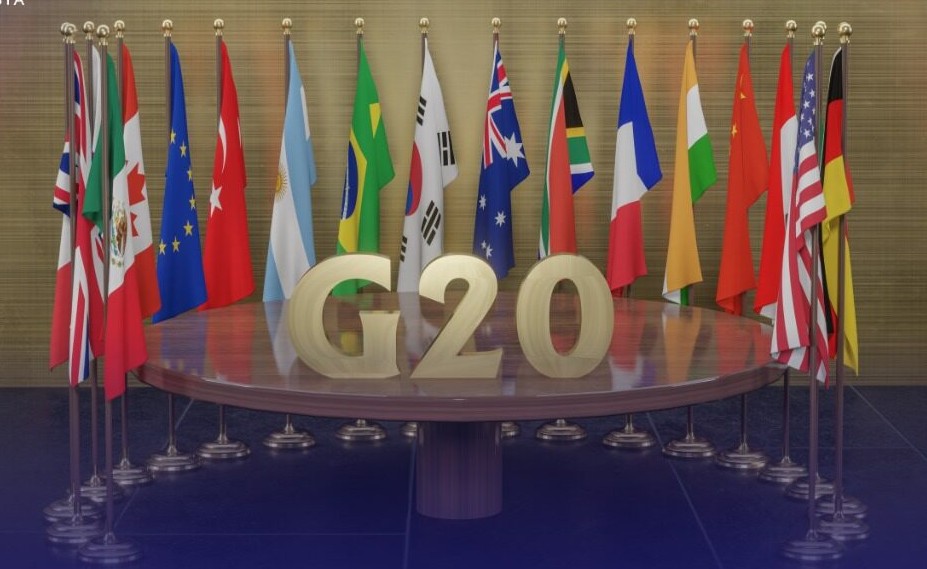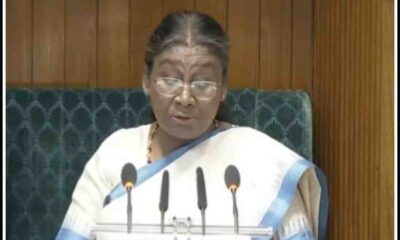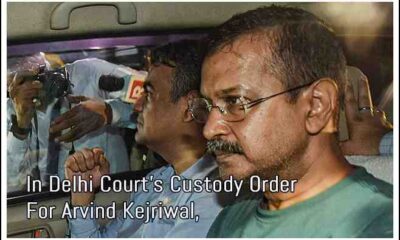Latest News
India will host a virtual summit of 120 “global south” nations
Published
1 year agoon

a forum for discussion of their viewpoints and priorities on issues ranging from financial development to energy security
Next week, India will host a virtual summit of about 120 ‘global south‘ nations to talk about their priorities and viewpoints on a single platform.
The virtual summit is significant because India is the G20 group’s current president and Prime Minister Narendra Modi previously stated that priorities
India will host ‘The Voice of Global South’ Summit on January 12-13. As many as 120 countries will participate in the summit
According to Foreign Secretary Vinay Kwatra, “The Voice of Global South” Summit will be held in India on January 12 and 13. Up to 120 nations will take part in the summit. The virtual summit is significant because India is currently the G20 group’s president and because Prime Minister Narendra Modi previously stated that developing countries would be consulted when setting priorities.
The Voice of the Global South Summit’s theme is
Under the theme ‘Unity of Voice, Unity of Purpose,’ the ‘Voice of Global South Summit’ aims to bring together countries from the Global South to share their perspectives and priorities on a common platform.
More Information on the Summit:
According to the MEA, there will be ten sessions at the summit, with four on January 12 and six on January 13. Leaders or ministers from 10 to 20 different nations are anticipated to attend each session.
The Prime Minister would serve as host for the opening and closing sessions, which would be attended by heads of state or governments. “Voice of the Global South – for Human-Centric Development” is the theme of the opening leaders’ session, and “Unity of Voice -Unity of Purpose” is the theme of the concluding leaders’ session.
Read Also – Amit Shah dedicates a 120-foot-tall polo statue in Manipur
the following eight ministerial sessions on various topics:
session of the finance ministers on “Financing People-Centric Development.”
Balancing Growth with Environment-Friendly Lifestyles (LiFE)’ session for environment ministers.
‘Priorities of the Global South – Ensuring a Conducive Environment’ session for foreign ministers.
Energy Security and Development: A Roadmap to Prosperity, a meeting of energy ministers.
“Cooperation to Build Resilient Healthcare Systems” session for health ministers.
The “Human Resource Development and Capacity Building” session for education ministers.
Developing Synergies in the Global South – Trade, Technology, Tourism, and Resources is the topic of a session for commerce and trade ministers.
Definitions of the global north and global south:
The terms “Global North” and “Global South” are used to describe a broad range of nations, including the United States, Canada, Europe, Russia, Australia, and New Zealand. Given that the nation’s wealth, educational and healthcare indicators, and other factors are similar across the board, this classification is more accurate.
In the last few decades, some South Asian nations, including China and India, have experienced economic growth. The idea that the North is ideal is also viewed as being challenged by the progress made by many Asian nations.
the geoeconomics of the Global South.
The South is actively pursuing geoeconomics, but it is being cautious due to its concern over the U.S. strategy of freezing its dollar reserves.
The United States recently announced its trade policies of “re-shoring” and “friend-shoring,” or trade between allies.
It has gradually led the south to seek alternatives to the dollar in bilateral trade by utilizing local currencies.
China and the Association of Southeast Asian Nations (ASEAN) + 3 countries use currency swap arrangements, as do India and Russia, and 23 other countries.
India as the Global South’s Voice:
To advocate for the Global South today, India would need to take a more active role in the complex regional politics of the developing world.
India must accept the fact that the Global South does not function as a cohesive unit and does not have a single common goal. In terms of power and wealth, needs, and capabilities, the South today is highly diverse. This necessitates a specific Indian policy for the various developing world regions and populations.
India is eager to act as a link between the North and the South by emphasizing pragmatic results as opposed to resuming previous ideological conflicts. There won’t be a conflict between the simultaneous pursuit of universal and specific goals if India can turn this ambition into an effective policy.
You may like
-


North Korea asserts that the test of a multiple-warhead missile was successful
-


The Student Wing of Congress storms the Exam Body NTA office and locks it from within
-


“During President Murmu’s address to Parliament, PM Modi was shown 73 times, and LoP Rahul Gandhi was shown six times”: Congress
-


NASA contracts Elon Musk’s SpaceX to deorbit the International Space Station in 2023.
-


A Caution For The CBI In The Delhi Court’s Arvind Kejriwal Custody Order
-


Bar Council of India requests that bar associations abstain from demonstrating in opposition to new criminal laws
